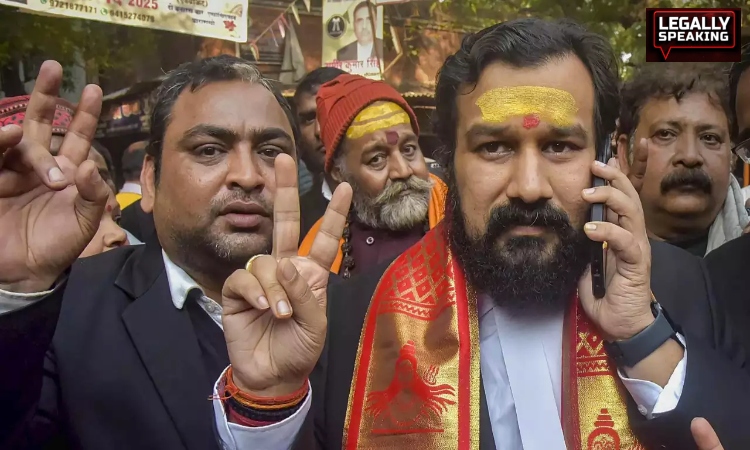
Against the Varanasi District Court’s order to restore the worship rights of Hindus in the Vyas Ji basement of Gyanvapi, the Masjid Arrangement Committee approached the Supreme Court at 3am for an urgent hearing, but they were disappointed. The Supreme Court said that if there is such a hurry then first appeal in the High Court.
The legal team of the Masjid Arrangement Committee approached the residence of the Supreme Court Registrar on the intervening night of Wednesday-Thursday, requesting an urgent hearing and expressing concern about the night-time prayers inside the mosque. After some time, the Registrar of the Supreme Court conveyed the Chief Justice’s message to the Advocate-on-Record of the Mosque Arrangement Committee, Fuzail Ahmed Ayyubi, that he should approach the Allahabad High Court.
The Masjid Arrangement Committee had argued in its urgent petition that the administration was taking prompt action after the Varanasi court order. In a letter conveying urgency to the Supreme Court registry, the committee represented by advocate-on-record Fuzail Ahmed Ayyubi wrote that, there is no reason for the administration to rush into this task in the dark of night as the trial court In the order passed, he was already given one week’s time to make necessary arrangements. The clear reason for such undue haste is that the Administration in connivance with the plaintiff party is trying to prevent any attempt by the Masjid Management Committee to take advantage of their treatment against the said order by presenting them with a certain achievement.”
In August last year, the Supreme Court had allowed the Archaeological Survey of India (ASI) to survey the mosque complex (except the so-called ‘Vuzukhana’ where a ‘Shivalinga’ was found). The purpose of the ASI survey was to determine whether the mosque was built on a pre-existing Hindu temple structure. The survey report was allowed to be made public by a Varanasi court on January 24. ASI findings have indicated the existence of a large Hindu temple before the construction of the Gyanvapi Mosque. Parts of this ancient temple, including its pillars, were reused in the mosque. The report also revealed inscriptions, statues of Hindu deities and architectural structures buried in a basement. The ASI report also mentions that the structure has been deformed and used in the construction and repair of the mosque.




